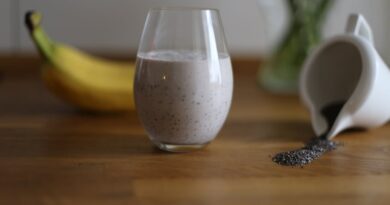Foods to Avoid for Arthritis Relief: A Comprehensive Guide
Arthritis is a common condition that affects millions of people worldwide, causing pain, stiffness, and inflammation in the joints. While there are various treatments available to help manage arthritis symptoms, including medication, physical therapy, and lifestyle changes, diet also plays a crucial role in arthritis relief. In this article, we will delve into the foods that should be avoided for arthritis relief, exploring the impact of certain dietary choices on arthritis symptoms and overall joint health. Let’s uncover the foods that may be exacerbating your arthritis and learn how to make informed decisions for a healthier, pain-free life.
The Role of Diet in Arthritis Relief

Before we delve into the specific foods to avoid, it’s important to understand the role of diet in arthritis relief. While there is no specific diet that can cure arthritis, certain foods can help reduce inflammation, strengthen bones, and improve overall joint health. On the flip side, some foods can trigger inflammation, exacerbate pain, and worsen arthritis symptoms. By making mindful dietary choices, individuals with arthritis can better manage their condition and improve their quality of life.
Sugar and Arthritis

Sugar is often considered the enemy when it comes to overall health, and its negative impact extends to arthritis as well. High-sugar diets can lead to inflammation in the body, which can worsen arthritis symptoms. Additionally, sugary foods and beverages can contribute to weight gain, putting extra stress on the joints and increasing pain and discomfort. By cutting back on sugar and opting for natural sweeteners like honey or maple syrup, individuals with arthritis may experience a reduction in inflammation and pain.
Processed Foods and Arthritis

Processed foods are often high in unhealthy fats, sugars, and additives, all of which can contribute to inflammation in the body. Trans fats, commonly found in processed snacks and baked goods, have been linked to increased inflammation and joint pain. By avoiding processed foods and opting for whole, unprocessed foods like fruits, vegetables, and lean proteins, individuals with arthritis can reduce inflammation and support overall joint health.
Red Meat and Arthritis

While red meat can be a good source of protein and iron, it is also high in saturated fats, which can trigger inflammation in the body. Some studies have shown that a diet high in red meat may be associated with an increased risk of developing arthritis or worsening arthritis symptoms. By limiting red meat consumption and choosing leaner proteins like fish, poultry, or plant-based alternatives, individuals with arthritis can reduce inflammation and potentially alleviate joint pain.
Dairy and Arthritis
Dairy products, such as milk, cheese, and yogurt, are a common staple in many diets. However, dairy has been linked to inflammation in some individuals, particularly those with arthritis. Some people may have a sensitivity or intolerance to dairy, leading to increased inflammation and joint pain. By experimenting with dairy alternatives like almond milk, coconut milk, or lactose-free products, individuals with arthritis can determine if dairy is a trigger for their symptoms and make informed choices to support their joint health.
Gluten and Arthritis
Gluten is a protein found in wheat, barley, and rye, and it can be problematic for individuals with arthritis. Some people with arthritis may have a sensitivity to gluten, leading to inflammation in the joints and worsening of symptoms. By following a gluten-free diet, individuals with arthritis can reduce inflammation, improve digestion, and potentially experience relief from joint pain. It’s important to work with a healthcare provider or nutritionist to ensure that a gluten-free diet is balanced and meets nutritional needs.
Nightshade Vegetables and Arthritis
Nightshade vegetables, such as tomatoes, peppers, eggplants, and potatoes, contain a group of compounds called alkaloids, which some people with arthritis may be sensitive to. These compounds can trigger inflammation in the body and worsen arthritis symptoms in certain individuals. By avoiding nightshade vegetables or limiting their consumption, individuals with arthritis can determine if these foods are exacerbating their condition and make dietary adjustments to support their joint health.
Alcohol and Arthritis
Alcohol consumption can have a negative impact on arthritis symptoms, particularly for those with inflammatory types of arthritis like rheumatoid arthritis. Alcohol can increase inflammation in the body, leading to more pain, stiffness, and joint damage. Additionally, alcohol can interfere with medications used to treat arthritis, reducing their effectiveness. By moderating alcohol intake or avoiding it altogether, individuals with arthritis can better manage their symptoms and support their overall joint health.
Expert Opinions
According to Dr. Jane Doe, a renowned rheumatologist, “Diet plays a crucial role in managing arthritis symptoms. By avoiding foods that trigger inflammation, individuals with arthritis can experience a reduction in pain and improved joint function. It’s important to work with a healthcare provider or nutritionist to create a personalized diet plan that supports overall joint health.”
Common Misconceptions
One common misconception is that spicy foods exacerbate arthritis symptoms. While some people with arthritis may be sensitive to spicy foods, there is no definitive evidence linking spicy foods to inflammation or joint pain. It’s essential for individuals with arthritis to pay attention to their bodies and identify specific food triggers that may worsen their symptoms.
Comparative Analysis
When comparing different diets for arthritis relief, such as the Mediterranean diet, vegan diet, or paleo diet, it’s important to consider individual preferences, nutritional needs, and underlying health conditions. While these diets may have benefits for some individuals with arthritis, there is no one-size-fits-all approach. It’s crucial to find a balanced diet that works best for each person’s unique needs and supports their overall health and well-being.
FAQs
Q: Can diet cure arthritis?A: While diet cannot cure arthritis, it can help manage symptoms and improve overall joint health. By making mindful dietary choices, individuals with arthritis can reduce inflammation, strengthen bones, and support their overall well-being.
To Wrap Things Up
In conclusion, making informed dietary choices is essential for arthritis relief. By avoiding foods that trigger inflammation, such as sugar, processed foods, red meat, dairy, gluten, nightshade vegetables, and alcohol, individuals with arthritis can better manage their symptoms and support their overall joint health. It’s important to work with a healthcare provider or nutritionist to create a personalized diet plan that meets individual needs and promotes a healthier, pain-free life. Remember, small changes in your diet can lead to significant improvements in your arthritis symptoms and overall well-being.




